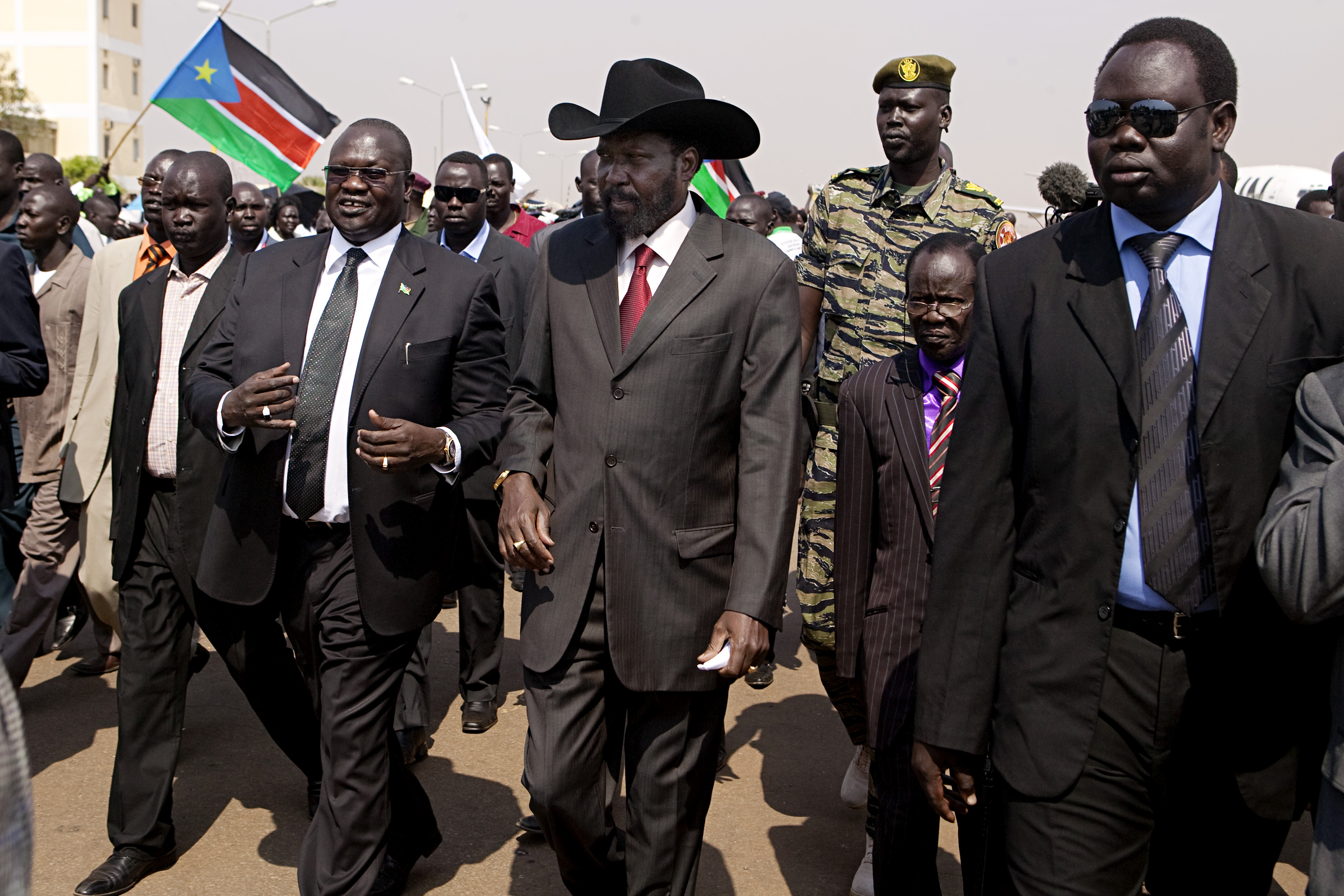
Who just got fired?
On July 23, South Sudan's President Salva Kiir issued a decree dismissing his longtime vice president, Dr. Riek Machar, along with all the ministers and deputy ministers in his cabinet. In a statement read on national television late Tuesday evening, Kiir also suspended Pagan Amum, the Secretary-General of South Sudan’s ruling political party, the Sudan People’s Liberation Movement, or SPLM. Social media reports that 17 brigadier generals have also been removed from their posts.
Who is left running the government?
No new ministers have been appointed yet and the decree reduces the size of government significantly from 29 to 18 ministries. A government spokesman told the AFP that "some of these people will come back and some will not.” In the meantime, under-secretaries will be running South Sudan’s government.
A committee headed by the Speaker of South Sudan’s parliament and Deputy Chairman of the SPLM, James Wani Igga, has been formed to investigate Amum. Wani Igga is known to be close to Kiir.
What about negotiations with Sudan?
Both Machar and Amum have prominent roles in the ongoing talks between Sudan and South Sudan. Following the reshuffle, it is unclear who will continue discussions on the final status of the disputed Abyei area straddling the Sudan-South Sudan border, Bashir's threat to stop the oil flow on August 7, and tit-for-tat allegations of proxy rebel support.
What explains the recent reshuffle?
This latest move is part of an ongoing struggle in the highest levels of South Sudan's political leadership. Both Vice President Machar and Secretary-General Amum have openly voiced their intent to contest the 2015 elections. The contest is expected to stay within the ruling SPLM party, since President Kiir plans staying on as Chairman of the party and its presumptive nominee. In a survey conducted by the International Republican Institute Kiir polled with 71% approval rating while Machar polled at 60%. Senior party officials and others have been trying to mediate escalating tensions for months. Machar recently upped the ante by publicly announcing his intention to run for president in an interview with the Guardian.
Is it legal?
The cabinet "reshuffle" seems to be legal as South Sudan's transitional constitution, which was adopted in 2011, gives President Kiir broad authority to dismiss senior government officials. Article 104(2) specifically allows him to remove the Vice-President and Article 112(1) allows for the removal of all "ministers of the national government." However, unilaterally removing Pagan Amum from the post of Secretary-General of the SPLM without prior approval of the SPLM Liberation Council violates the terms of the party's procedure, which requires a 2/3 vote.
Has President Kiir done something like this before?
The President's April 15 decree stripping Machar of his delegated powers under the constitution was a warning shot. Most analysts agree that the April decree, which limited Machar to constitutionally mandated powers was precipitated by the vice president’s then-private announcement that he was planning on contesting the presidency.
More recently, President Kiir removed Taban Deng Gai from his post as governor of Unity State. Deng was involved in the internal political struggle and has publicly said that his removal was unconstitutional. Kiir also recently suspended Deng Alor Kuol, his minister of cabinet affairs and Kosti Manibe Ngai, his minister of finance, for alleged involvement in a corrupt business deal. Both Kosti and Deng Alor have alleged that they were wrongly accused and that their removal was politically motivated.
Earlier this year, South Sudan saw a major reshuffle of the army. In mid-February, President Kiir fired 117 top army commanders including deputies to the Chief of General Staff and relieved 23 other senior officers via presidential decree.
How are people reacting in Juba?
Things are tense, but quiet. Increased army presence is visible on the roads. Shops have been closed and expatriate staff were told to stay indoors. All U.N. staff have been told to work from home tomorrow. Until the reshuffle is complete, it is going to be difficult to know how the power players affected by Kiir’s decision will react. Most were completely unaware of Kiir’s decision until they saw the announcement on TV.
If managed incorrectly, the dramatic removals could have potentially violent ramifications, especially since South Sudan is prone to ethnicized mobilizations and the proliferation of aligned non state armed groups. Continued and sustained diplomatic engagement with all the key players is essential at this critical time. While it might be tempting to dismiss these developments as internal politics, the specter of divisive violence is too real to ignore. The U.S. government played a significant role in securing South Sudan’s independence and should not allow its commitment to waver now.
Akshaya Kumar is the Sudan and South Sudan policy analyst for the Enough Project.
Photo: (L-R) Salva Kiir Mayardit (center),Dr. Riek Machar, and James Wani Igga (AP).

